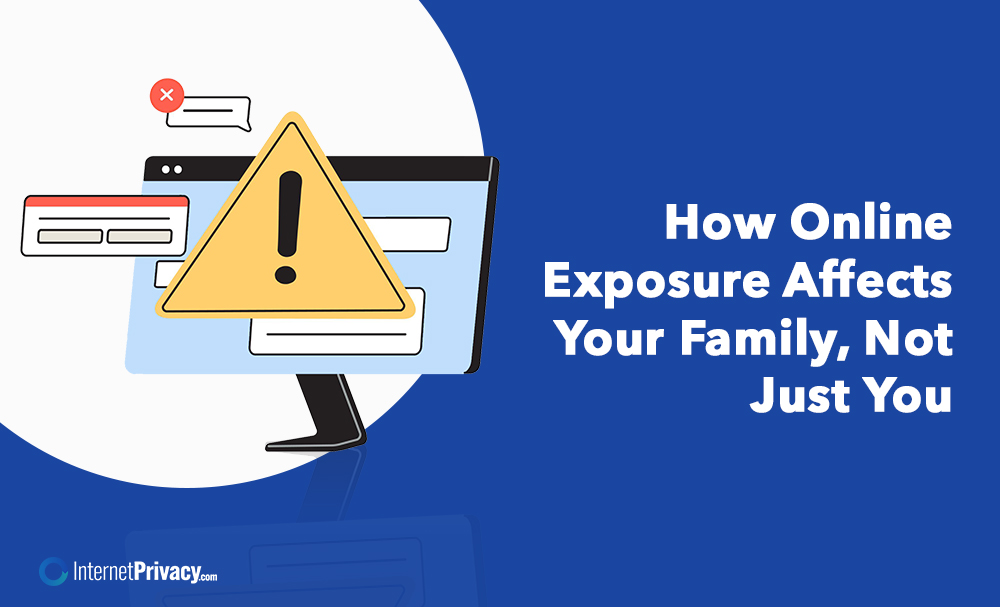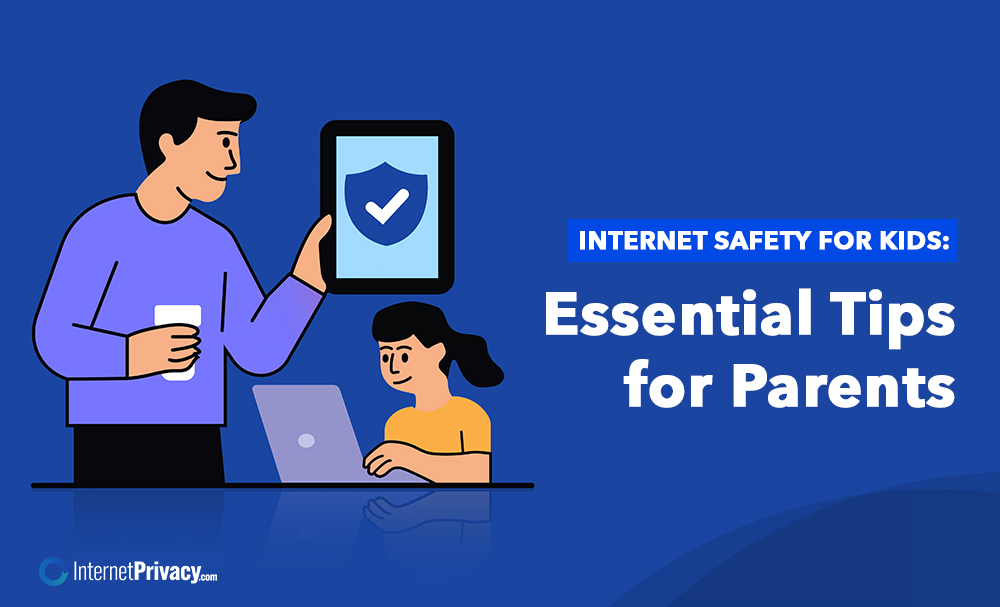How Online Exposure Affects Your Family, Not Just You

In a world where nearly every aspect of life is connected to the internet, families face new safety challenges that extend far beyond screen time. From social media platforms to e-commerce sites, online exposure not only puts our personal data at risk but also compromises the well-being of our loved ones. For parents, the focus isn’t just on what teens are doing online—it’s about how digital activity can expose the entire family to online threats, privacy issues, and emotional stress.
The shift to digital living has been swift and far-reaching. We bank online, attend school meetings on Zoom, share milestones on Facebook, and use smart devices to manage our homes. But with each of these conveniences comes a tradeoff: the increasing vulnerability of our personal information, and by extension, our families.
What Is Online Exposure, Really?
Online exposure refers to the way families interact with digital spaces and the vulnerabilities that arise from this interaction. Every time someone shares personal information, creates an account, or clicks on a suspicious link, they’re potentially putting the household at risk. Exposure includes data collected by websites, personal photos shared on social media, and the digital footprints left behind from casual browsing.
This exposure doesn’t just affect the person using the device. It can lead to identity theft, scams targeting relatives, and even the unwanted spread of sensitive family information. For example, a child posting about a vacation could reveal that no one is home—an open invitation for someone with bad intentions.
As online risks increase, awareness becomes vital. Understanding how data flows through platforms, how your digital behavior can influence algorithms, and how small mistakes online can become big problems later is key to keeping your family secure.
The Hidden Dangers of Social Media Platforms
Social media platforms like Facebook, Instagram, and TikTok have become fixtures in everyday life. While they help friends and relatives stay connected, they also make it easy to overshare. A single post can reveal your child’s school, your home location, or your family’s schedule.
This kind of exposure creates vulnerability. Strangers can access personal details, scammers can use photos to impersonate loved ones, and algorithms may quietly collect more information than you realize. Once content is online, it’s often impossible to entirely remove, and the likelihood of it being copied or misused increases.
Sharenting, the practice of parents posting about their children, is one example of how innocent intentions can lead to unintended consequences. Photos from birthday parties or family vacations, when shared publicly, can be scraped by data brokers or fall into the wrong hands.
Online Exposure and Family Safety Risks
Online exposure affects more than mental health—it can compromise physical and emotional safety at home. Here are a few ways this happens:
- Revealing Locations: Posting from your home or during vacation broadcasts where you are—and where you aren’t.
- Data Leaks: Children may unknowingly share sensitive data that can be exploited.
- Phishing and Scams: Family members may be targeted by personalized attacks that utilize data collected online.
- Cyberbullying and Harassment: Harmful messages don’t always stay on screen—they affect household dynamics and emotional health.
- Reputation Damage: A single comment, photo, or video can follow someone for years, impacting their school, job prospects, and relationships.
It’s important to remember that the internet is a permanent archive. Search engines index content fast. A seemingly harmless video or post today could be reposted, edited, or misrepresented years later. And when one family member becomes the target, the stress, confusion, and sense of violation affect everyone.
Recognizing When Your Family Is at Risk
Not all signs of danger are obvious. But here are a few tips to help spot red flags:
- A child becomes secretive or upset after using their device.
- You receive suspicious emails or texts referencing your family.
- Personal information about your household appears on unfamiliar websites.
- Friends or relatives mention posts or comments you didn’t know were public.
Parents should also be aware of unusual spikes in device usage, changes in behavior, or mood swings that may occur following online interactions. Sometimes, the source of distress isn’t visible, but the effects are. By staying alert and asking questions, parents can reduce the risk of more serious harm.
A Few Tips to Protect Your Family’s Safety Online
Protecting your family doesn’t mean cutting off technology—it means managing it wisely.
- Talk early and often about what your family shares online. Explain how exposure affects everyone.
- Use privacy settings across all platforms and devices. Teach kids how to limit access to their content.
- Avoid posting real-time location updates or identifiable landmarks.
- Secure accounts with strong passwords and two-factor authentication.
- Regularly check search engines for your family’s name, photos, or contact information.
- Encourage the use of secure websites for shopping or school-related tasks.
- Educate kids about phishing attempts and scams. Knowing what to avoid is a powerful tool.
These simple steps can significantly reduce the likelihood of exposure becoming a serious threat. They also help families build confidence when using technology, ensuring it works for them, not against them.
When You Need Outside Help
Sometimes, safety issues escalate beyond what families can handle on their own. If your family is being harassed, impersonated, or if sensitive information is circulating online, don’t hesitate to seek help.
Reputation management services can help with content removal, managing Google search results, and restoring your online reputation. These services often include monitoring tools that alert you to new mentions, enabling you to act quickly when issues arise.
Legal action may also be necessary in cases involving doxxing, harassment, or identity theft. Law enforcement can investigate serious threats, and privacy attorneys can guide you through the available legal options.
Therapists and school counselors can support children emotionally if they’re struggling with online harassment or privacy violations. Safety includes mental health, and your family deserves a strong, supportive system to face these challenges.
Final Thoughts
Online exposure is more than a privacy concern. It’s a safety issue—and one that affects the entire household. With numerous platforms, tools, and websites tracking user behavior, families must be proactive in protecting their online space, data, and peace of mind.
The internet isn’t going anywhere, and neither are the risks associated with it. But knowledge is power. By building awareness, establishing firm boundaries, and fostering open communication, parents can guide their families more safely through the digital world.
It’s not about banning devices or fearing technology. It’s about being thoughtful, informed, and prepared—so that what your family shares online supports your future, rather than putting it at risk.





